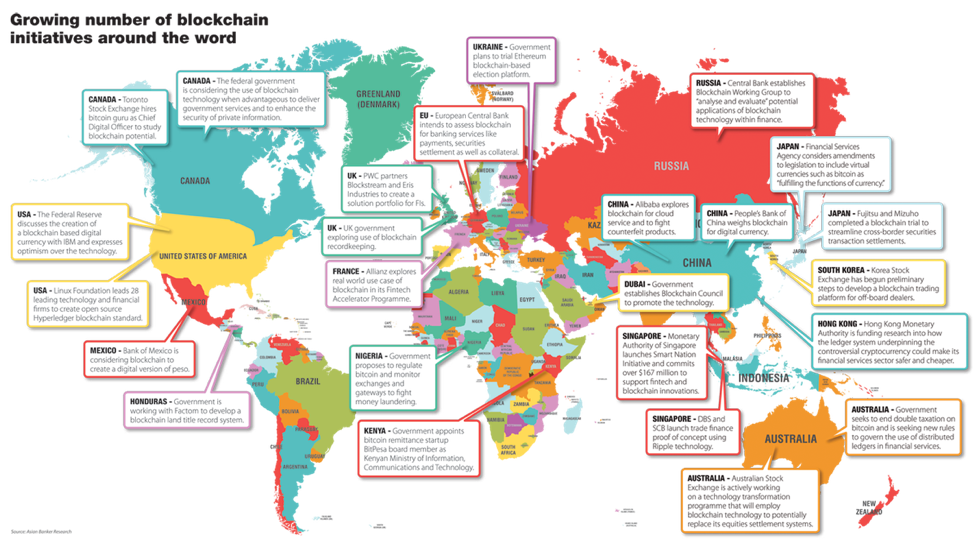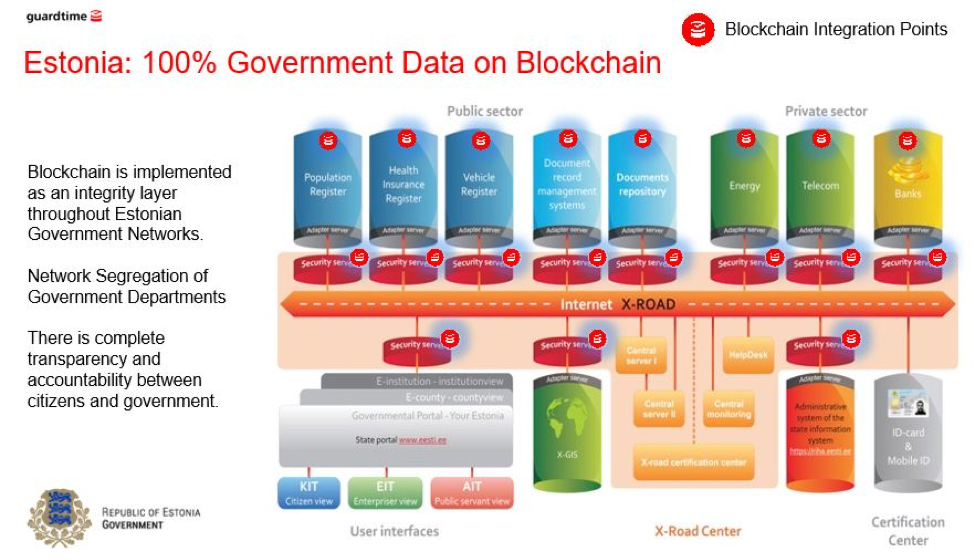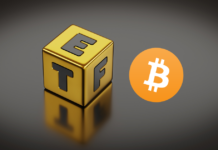Every week there is another government announcement how and where they are launching a blockchain solution or supporting a blockchain initiative. As I write this the Democratic Party of India have just announcement that they will be using MiVote, an Australian blockchain project. The Indian government will be the world’s first political party to adopt the blockchain voting mechanism.
The significance of government adoption should not be overlooked. Much of the media is focused on the negative statements from governments on blockchain, whilst these exact same governments are also adopting blockchain.
It is also important to recognise that for a government to announce that they are implementing a blockchain solution, that this is only after months and months of research, testing and piloting these blockchain solutions. Any announcement you hear is approximately 6–12 months after they started researching the opportunity.
The purpose of this article is to provide some specific examples of blockchain adoption by Governments, at all levels, around the wold.
This is not a definitive list as every week there are more announcements of blockchain implementation by governments around the globe.

SNAPSHOT OF SOME GOVERNMENTS ALREADY USING BLOCKCHAINS AND HOW
Switzerland- The Province of Zug
In November 15th, 2017, the government of the province of Zug through their registry department launched the issuance of digital IDs based on ETH.
Zug Residents were invited to join the blockchain pilot for uPort, a self-sovereign identity platform. Using uPort’s App citizens can encrypt their personal information and receive an ID which is linked to a cryptographic address on the Ethereum blockchain. Once the information is verified, users can “seamlessly interact with the digital services of the City of Zug.”
According to their media release, Zug will offer a variety of services through uPort, such as e-signatures and parking fee payment, and will test out an e-vote during the first phase in spring 2018.
Zug is fast becoming one of the most progressive and technologically advanced cities in the world. In addition to uPort’s pilot, the city has pioneered a number of innovative blockchain pursuits, including the establishment of the government-backed Crypto Valley Association in March 2017.
Chile – the National Energy Commission
On April 19th, 2018 Chile’s National Energy Commission launched the use of blockchain in Energy.
The National Energy Commission will use the Ethereum blockchain to track energy data and finances from the energy. The move is in a bid to ensure that there is accountability in the sector. Chile’s Energy Ministry said it would commit data to the public Ethereum ledger in order to “augment levels of security, integrity, traceability and confidence in the information available to the public”.
The commission has already begun committing data to the blockchain, including information about installed electricity-generating capacity, average market prices, marginal costs, hydrocarbon prices and compliance with laws requiring that renewables account for a certain share of electricity generation.
What this means is, the results from the Energy blockchain project or as called in Chile ‘Energy Abierta’ will be studied. The results will then be shared to other sectors within the Chilean government with the prospect of additional sectors implementing blockchain solutions.
Estonia – E-Resident programme

On 18th December 2017, Estonia established use of blockchain system. The Estonian adoption of blockchain is the most interesting. Here is why;
The is some history with Baltic nation and blockchain. Back in 2004 the country launched a program called ‘E-Resident’. The digital program saw citizens of countries across the globe register businesses in Estonia by becoming digital citizens.
With the launch of their digital citizen program came their blockchain evolution. This evolution advocated for the decentralization of services.
Coupling the E-Resident program in Estonia and blockchain is synergistic. Currently, the E-Resident program is Ethereum based.
Though unofficial as of now, plans are in discussion to launch Estonia’s own ICO. The propsed coin, ‘ESTcoin’, is to make the E-Resident programme even more exciting and easier to adopt.
United Kingdom- Welfare Payment and Student Loans
On August 3rd, 2016 the first blockchain platform-as-a-service agreement has been signed by the UK government.
The distributed ledger technology (DLT) is now available to buy through Government Digital Services’ Digital Marketplace, under the G-Cloud framework agreement, for government organisations that want to experiment with it.
National government organisations, as well as organisations under the devolved governments of Scotland, Wales, and Northern Ireland and local authorities are free build and deploy secure, enterprise-grade DLT services.
Georgia- Land Titles Registry on Blockchain
With their young democracy feeling threatened by Russia and a history of corruption, the Georgia government decided to convert its land registry to blockchain on Dec 3rd 2017.
The blockchain land register has already cut cost by over 90%. The time to handle land related issues is also considerably reduced. The register has seen over 300,000 entries on the register.
The blockchain register handles registration of new tittle deeds, rentals, mortgages and the transfer/sales of title deeds.
Australia- Queensland Tourism allocating grants for Tourism
The Government of Queensland in Australia recently threw its weight behind crypto payments. A move which many government operatives say will boast tourism for the state.
Tourism is a key economy mover for Queensland. In the official government website, the government announced just in August that they will make available grants for investors in this space. So far grants totaling to AUD$8.3 million have been allocated to 70 domestic companies .
According to the government announcement, one of the these new blockchain entities, TravelbyBit, received $100,000 for capacity improvement and expansion within the state.
Travelbybit is a blockchain startup that allows easy payments of services and goods through crypto.
“Tourism is one of Queensland’s most important industries. TravelbyBit has devised a clever way to make it easier for visitors to our state to pay for their purchases with a growing number of local businesses accepting cryptocurrency payments.” The Queensland Innovation Minister Kate Jones
Singapore- Finance Department
As of October 13th, 2017, Interbank payments can be done in Singapore using blockchain. This is through a partnership between the Monetary Authority of Singapore (MAS) and a consortium of financial institutions.
The project, Project Ubin, is the lead project in a greater strategy to adopt blockchain in Singapore’s financial sector. The government plans to tokenise the state’s currency on Ethereum network.
In addition to that, the Authority also announced an allocation of over $225 million dollars to blockchain research and development. Singapore’s government services and the financial services are bracing for a ‘Great Blockchain Revolution’.
Venezuela – Petro Coin, An Oil-Backed Currency
In 2018, Venezuela declared Petro Coin as the primary digital currency. This was in an effort to phase out the Bolivar which was going through record setting inflations.
Petro Coin is oil-based Venezuelan currency. The premise is that Petro Coin is backed with the oil reserves in the country. The coin runs on the NEM blockchain despite the whitepaper pointing out to the coin being an ERC-20 Token on ETH. So it’s still a little bit in the ‘confusion’ stage.
USA – Democracy, Decision Making and Business
There still lie hurdles in implementation of blockchain in the world’s largest consumer economy, the USA. However, some States have already cleared the path for blockchain adoption:
· Delaware State- Registration of the businesses
In May 2018, the Delaware House passed historic regulation that allows for the registration of businesses and trading on blockchain platforms.
Matthew O’Toole, Chair of the Corporate Law Section of the Delaware Bar Association says that “he expects the bill to be signed to law soon.” He further adds that “We look forward to helping Delaware corporations enjoy the benefits of this innovative new amalgamation of law and technology.”
The momentum driving the bill was Caitlin Long of blockchain startup Symbiont and blockchain lawyer Marco Santori of Cooley LLP.
In light of the bill, Delaware State awarded IBM the contact to design the distributed ledger based on the hyperledger blockchain framework.
In October, the state will launch a proof of stake concept. The concept will ensure cooperates enlisted in the State have access to smart contracts. The smart contracts will help track stocks and collaterals in real time. This will help businesses meet state and federal regulations with ease.
· West Virginia- Democracy and Decision making
After a successful pilot in two States, West Virginia will use the blockchain based mobile App in all the 55 counties during midterm election.
This decision was reached after the pilot was hugely successful. The voting through app means military members from West Virginia will be able to cast their votes and have a say in the democracy and make decisions.
India – Democratic Party of India
On August 27th, the Democratic Party of India (DPI) becomes the world’s first political party to adopt the global MiVote model. In doing so, the DPI will be the first Party in Indian history to determine all policy positions through a blockchain-enabled democratic platform that will ask every Indian citizen their preferred direction for their community
Following from his success at the Commonwealth Heads of Government meeting in London earlier in 2018, advocate, social entrepreneur and founder of MiVote India, Joydeep Mondal said, “The great potential of India can only be achieved when the collective voice of the people is harnessed.”
This is literally just a snap-shot of how governments around the world are adopting and implementing blockchain.
BUT WAIT…. THERE’S MORE.
If you consider that almost every government in the world would spend months and months of research, testing and operating pilots before they even consider making an announcement about running trials, you can be assured that this the list above is just the beginning.
Countries Exploring the Use of blockchain
Sweden- Land Registry
Through the Swedish Cadastre Office, the Swedish land department is exploring the possibility of converting the land register to blockchain. The office says that time has come to change the registry to blockchain as the paper to digital system was done in the 70’s.
Speaking on behalf of the office, Mats Snäll says,
“In the 1970s, Sweden brought the land register from paper into the computer. So suddenly we did not trust the paper anymore. The Swedes have great faith in their state. But times changes and people do. The younger generations have grown up with cyber security, transparency and digitization. As a state, we must ensure that citizens still trust us tomorrow. Because otherwise they will trust companies like Google and use a future land register app that they are surely working on already.”
Brazil- Write Laws and Petition Processing on ETH
The Brazilian government seeks to move petitions that require voting and to Ethereum.
The move is aimed at improving transparency and accountability. If passed by congress and signed to law, the bill will deal with the country’s inefficient system. A move is generally seen as a great move in regards to the county’s democracy.
Dubai- All Government Departments
The government of Dubai has a very ambitious goal when it comes to cryptocurrency and blockchain. They have laid an objective of being the global capital for blockchain technologies.
The government plans, through the Global Blockchain Council to roll-out many blockchain supported initiatives in this year. The projects will be in cooperated in many government departments including:
- Education
- Energy
- Healthcare
- Road and Transport
To date, the government of Dubai has started by partnering with IBM for trade and logistics.
Canada- Government Grants on Ethereum
Canada is seeking to utilize the ETH blockchain for issuing research grants. The use of Ethereum will see more transparency in the sector. Corruption is the main problem in research grants in Canada.
According to Canada’s National Research Council,
“Blockchains provide the ultimate in transparency and trust, making this technology a brave new world for organizations that strive to conduct transparent business.”
Indonesia- Data Management
On 6th May 2018, Indonesia expressed interest of exploring blockchain for data Management. The data that will range from the country’s food output to election result verification. This move is in pursuit of accountability and data tracking ease.
Through the Director of Financial Innovation for the country’s Financial Services Authority, Mr Hadi Fithri, they have assigned a team dedicated to research and develop the right blockchain platform to be used.
India- Digital economy
In his budget speech made on February 1st, the Indian Finance Minister said the government was out to research blockchain. The aim of this exploration is to usher a digital economy. Mr. Arun Jaitley said the government is proactively doing research for this.
European Union- Information Exchange
On 11th April 2018, 22 Europe based countries came together to try form blockchain technology aimed at exchange of information.
The new group is called European Blockchain Partnership. The alliance is made up of countries like Netherlands, Germany, France, UK, Norway and Spain.
In a statement by European Commissioner for Digital Economy and Society, Mariya Gabriel Said,
“Blockchain is a great opportunity for Europe and member states to rethink their information systems, to promote user trust and the protection of personal data, to help create new business opportunities and to establish new areas of leadership, benefiting citizens, public services and companies.”
Ukraine- Voting
A member of the Ukraine Electoral team of the country in August 2018, hit to facebook to reveal the blockchain involvement. According to the post, the country was on the trial stages and taking into account all the logistics that will be needed to pilot the voting on the NEM blockchain.
Conclusion
The blockchain revolution started a while ago. It is now behind the closed-doors of governments who need to research, test, evaluate, pilot and only then inform their citizens how, where, and why they will be deploying blockchain technology.
Click here for more from David Freuden.



























